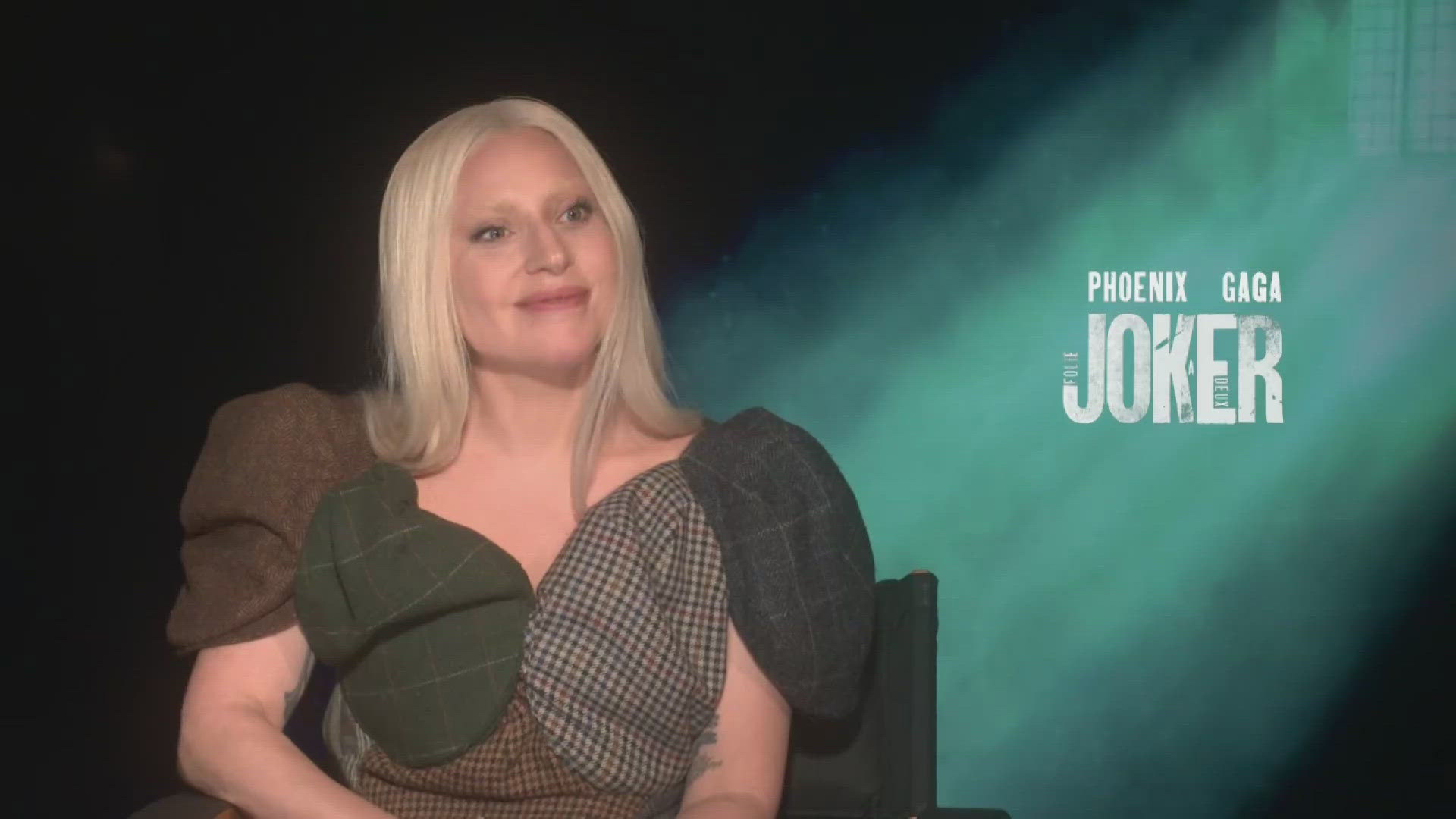VENICE, Italy — “Joker” is a hard act to follow. Todd Phillips’ dark, Scorsese-inspired character study about the Batman villain made over a billion dollars at the box office, won Joaquin Phoenix his first Oscar, dominated the cultural discourse for months and created a new movie landmark.
It wasn’t for everyone, but it got under people’s skin.
Knowing that it was a fool’s errand to try to do it again, Phillips and Phoenix pivoted, or rather, pirouetted into what would become “Joker: Folie à Deux.” The dark and fantastical musical journey goes deeper into the mind of Arthur Fleck as he awaits trial for murder and falls in love with a fellow Arkham inmate, Lee, played by Lady Gaga. There is singing, dancing and mayhem.
If Phillips and Phoenix have learned anything over the years, it’s that the scarier something is, the better. So once again they rebelled against expectations and went for broke with something that’s already sharply divided critics.
As with the first, audiences will get to decide for themselves when it opens in theaters on Oct. 4.
Any comic book movie that makes a billion dollars is going to have the sequel talk. But with “Joker” it was never a given that it would go anywhere: Joaquin Phoenix doesn’t do sequels. Yet it turned out, Phoenix wasn’t quite done with Arthur Fleck yet either.
During the first, the actor wondered what this character would look like in different situations. He and the on-set photographer mocked up classic movie posters, like “One Flew Over the Cuckoo’s Nest” and “Yentl” with the Joker in them and showed them to Phillips.
“Sometimes you’re just done with something and other times you have an ongoing interest,” Phoenix said. “There was just more to explore. … I just felt like we weren’t done.”
So Phillips and his co-writer Scott Silver got to work on a new script, one that leaned into the music in Arthur Fleck’s head. Then his dreary Arkham life turns to Technicolor when he meets and falls for Lee, a Joker superfan.
“Joaquin Phoenix is not going to do a line drive. He’s not going to do something that’s fan service,” Phillips said. “He wanted to be as scared as he was with the first movie. So, we tried to make something that is as audacious and out there and hopefully people get it.”

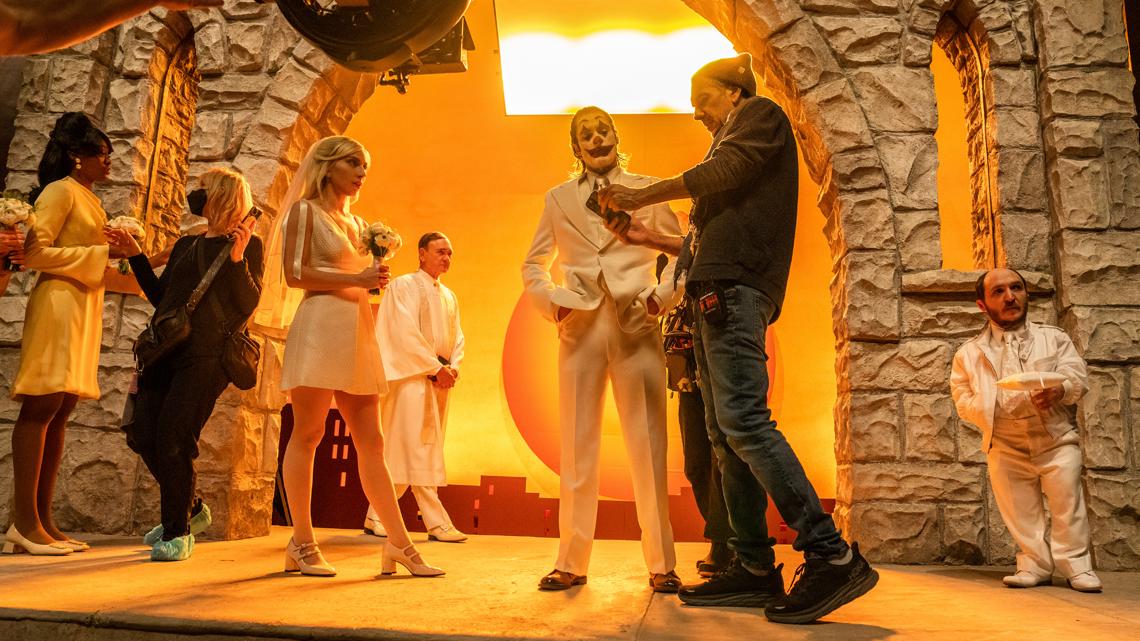
One decision that’s already sparking debate is casting someone with a voice like Lady Gaga’s and not using that instrument to its full power. Phillips, who was a producer on “A Star is Born,” wanted someone who “brought music with them.” But Lee isn’t a singer.
“Singing is so second nature to me, and making music and performing on stage is so inside of me. Especially this music,” Gaga said. “I worked extensively on untraining myself for this movie and throwing away as much as I could all the time to make sure I was never locking into what I do. I had to really kind of erase it all.”
Phoenix, who wasn't quite sure what it would be like working with someone who has such a larger-than-life superstar persona, found Gaga to be refreshingly unpretentious and available. And as an actor, he admired her commitment to the character.
“Her power is in singing and singing a particular way,” he said. “For her to sacrifice that through character, to do something that people would call a musical, but to not be performing it in the way that would sound best as a singer but to approach it from the character was a very difficult process. I was really impressed with her willingness to do that.”
In addition to writing a “waltz that falls apart” for the film, Gaga is releasing a companion album, “Harlequin” on Friday with song titles including “Oh, When the Saints,” “World on a String,” “If My Friends Could See Me Now” and “That’s Life."
Much like Phoenix’s Joker isn’t Heath Ledger’s or Jack Nicholson’s, Gaga’s Lee is not the Harley Quinn of “Birds of Prey.”
“We’re never going to outdo what Margot Robbie did,” Phillips said. “You have to do something 180 degrees in the other direction.”
Sure, Lee will still casually light something on fire to get some time alone with Joker, but the tumult is more internal. And Gaga threw herself into making Lee something new: A real person, grounded in a reality that came before her.
“I spent a lot of my time on developing her inner life (which) for me had a lot to do with her storm and what thing was always making her about to explode,” Gaga said. “There’s a particular kind of danger that she carries with her, but it’s inside and it’s kind of explosive.”

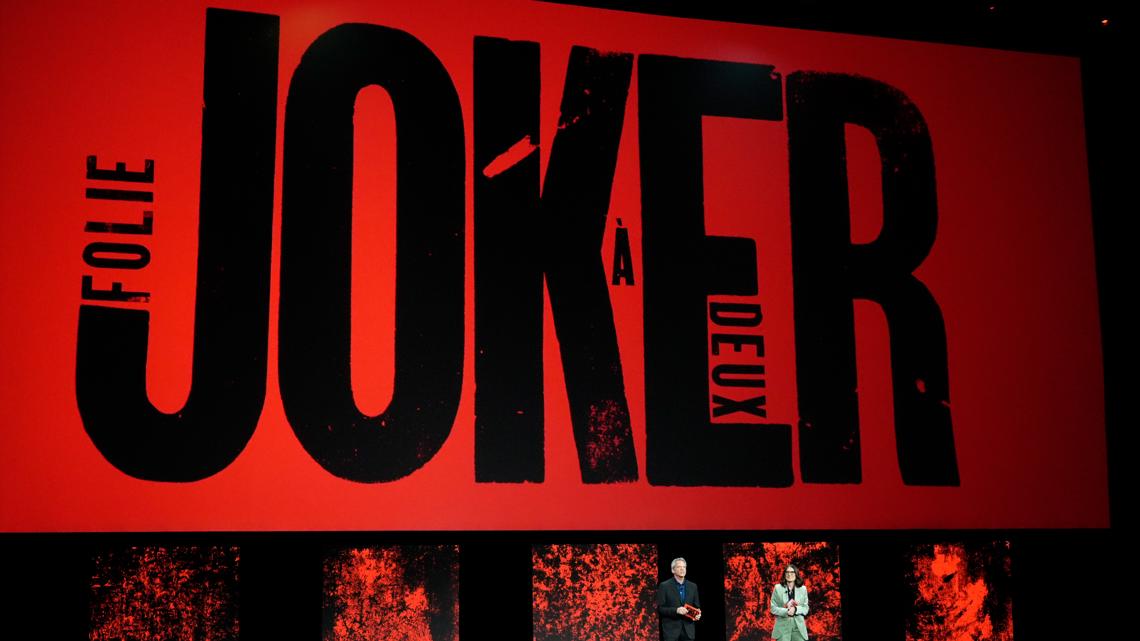
Brendan Gleeson didn’t have much hesitation about joining the ensemble. He’d worked with Phoenix before on “The Village” and was in awe of what he’d done on the first movie.
“He has an absolute relentless integrity and curiosity and drive,” Gleeson said. “He won’t just plough the same furrow for its own sake.”
But he also didn’t want to play the simple version of an Arkham prison guard.
“I said, look, do you just want a brute? Because I’m not sure I just want to do a brute,” Gleeson said. “He wanted something more. We tried to find layers in this guy.”
Anyone who has worked with Phoenix knows that he likes to keep things fresh. That may mean something as small as changing the location of a prop or as big as throwing out choreography that you’ve been rehearsing for months at the last minute.
“I think we both love mayhem and not just in movies but on the set,” Phillips said. “It had to feel like anything can happen.”
With the crew 95% the same as the first, everyone was ready to be flexible. Gaga, too, dove right in, suggesting that they sing live on camera.
“It changed the whole making of the film,” Phillips said. “We were not only singing live, we were singing live differently every take.”

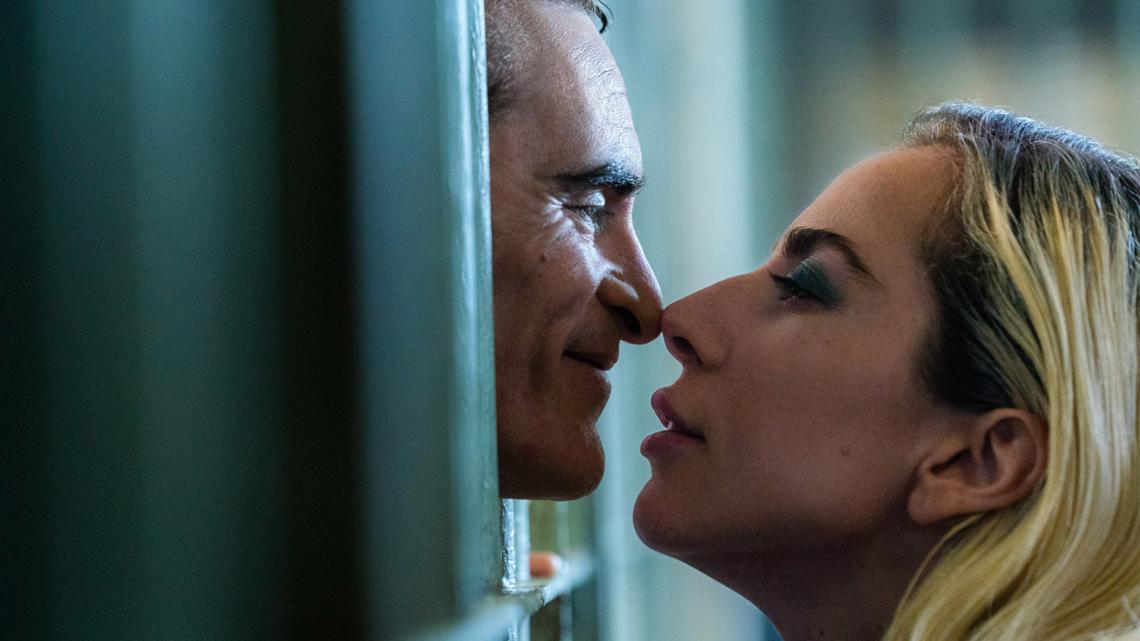
Since Arthur killed Robert De Niro’s talk show host Murray Franklin on live television in the first film, he’s become a kind of icon and curiosity thanks in no small part to an oft referenced, but never seen, television movie that was made about him. Now, the trial is going to be televised as well.
“Underneath it all, there’s this idea of corruption and how everything is corrupt in the system, from the prison system to the judicial system to the idea of entertainment, quite frankly,” Phillips said. “This idea that in the States at least, everything is entertainment. A court trial could be entertainment, and a presidential election can be entertainment. So, if that’s true, what is entertainment?”
It’s easier to be to the insurgent, not the incumbent, Phillips said. Although a Joker film is never going to fly completely under the radar, the spotlight is undoubtedly more intense this time around.
“You do feel like you have a larger target on your back,” Phillips said.
While much of the film was made on Warner Bros. soundstages in Los Angeles, the production did go back to New York to film again on the Bronx staircase (which now come up on Google Maps as the Joker Stairs) and outside a Manhattan courthouse. The production staged a massive protest scene, with Gaga, almost concurrently with the media frenzy around the Donald Trump hush money trial as if there weren’t enough eyes on them already.
Some are also handwringing about the sequel’s bigger budget and whether it can match the success of the first. But Phillips has learned to take it in stride.

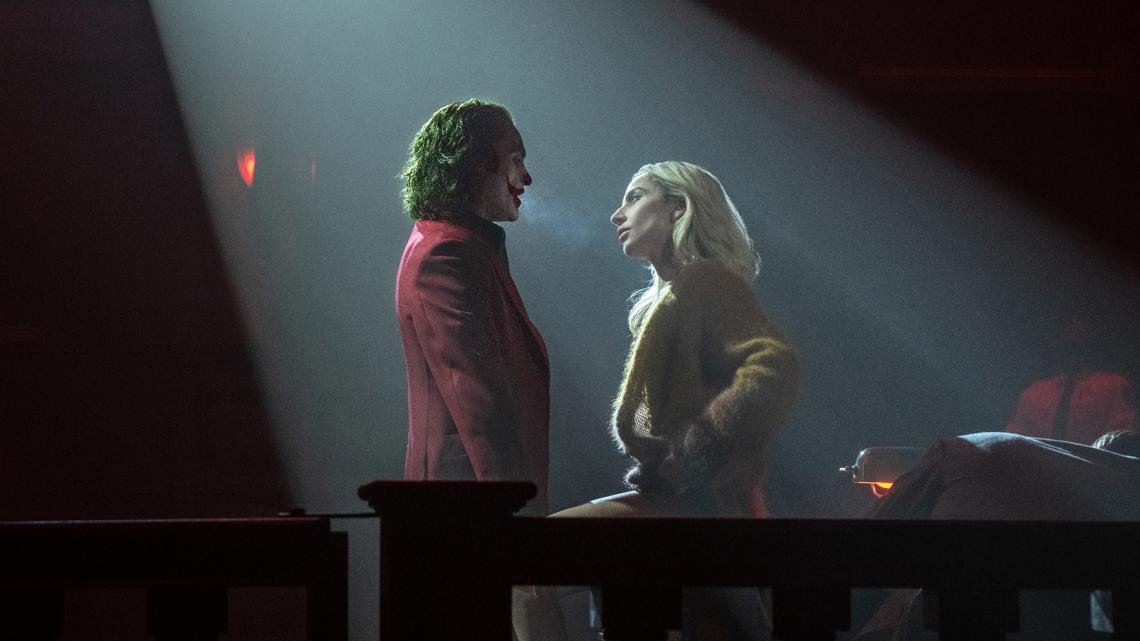
“There’s a different amount of pressure, but that just comes with making movies,” he said. “You can’t please everybody and you just kind of go for it.”
Gleeson has an even sunnier outlook.
“It has kind of arthouse movie integrity on a blockbuster scale. It’s great news for cinema, is the way I look on it,” Gleeson said. “If these event movies can continue to have depth and can be so conflicting like this one, is we needn’t worry about the future of cinema.”
One thing Phillips didn’t mean to do was ignite a discourse about what is and isn’t a musical. He’s just trying to manage expectations.
“People go, ‘what do you mean it’s not a musical?’ And it is a musical. It has all the elements of a musical. But I guess what I mean by it is all the musicals I’ve seen leave me happy at the end for the most part, ‘Umbrellas of Cherbourg’ not being one of them. This has so much sadness in it that I just didn’t want to be misleading to people.”

